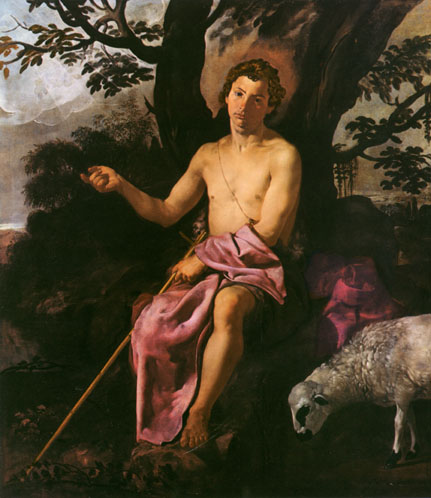 Only three births are commemorated in the liturgical calendar of the Church: that or Our Lord on the 25th of December, of Our Lady on 8th of September, the conception of both is also commemorated, and that of St. John the Baptist on the 24th of June. The feasts of all other saints usually mark the date of their death whether by martyrdom or natural causes – which may be considered as the date of their birth in the Kingdom of Heaven. The beheading of St. John the Baptist is commemorated on the 29th of August and only ranks as a memorial.
Only three births are commemorated in the liturgical calendar of the Church: that or Our Lord on the 25th of December, of Our Lady on 8th of September, the conception of both is also commemorated, and that of St. John the Baptist on the 24th of June. The feasts of all other saints usually mark the date of their death whether by martyrdom or natural causes – which may be considered as the date of their birth in the Kingdom of Heaven. The beheading of St. John the Baptist is commemorated on the 29th of August and only ranks as a memorial.
Why is St. John the Baptist considered so important? Dressed in camel skins and living on a diet of locusts and wild honey he must have presented a strange looking figure as he preached and baptised on the banks of the River Jordan. The pages of the Old Testament are littered with the names of the prophets – of those chosen by God to speak for Him – see the call of Samuel in 1 Samuel chapter 3. Repeatedly the prophets stress that it is not their own words that they utter, but rather that it is God speaking through them. St. John the Baptist is seen as the last of these Old Testament prophets calling the wayward Chosen People back to God and he did not mince his words in doing so calling the Pharisees and Sadducees, the Temple ‘aristocracy’ of the time, a ‘brood of vipers’. He stands astride both the Old and the New Testaments. He foretells the coming of the Messiah – one greater than he whose sandal strap he is not fit to undo. He baptises with water but he warns that one is coming who will baptise with the Holy Spirit and with fire. Finally, John’s baptism of Jesus is traditionally seen as the beginning of Jesus’ public ministry – He must increase as I must decrease. H